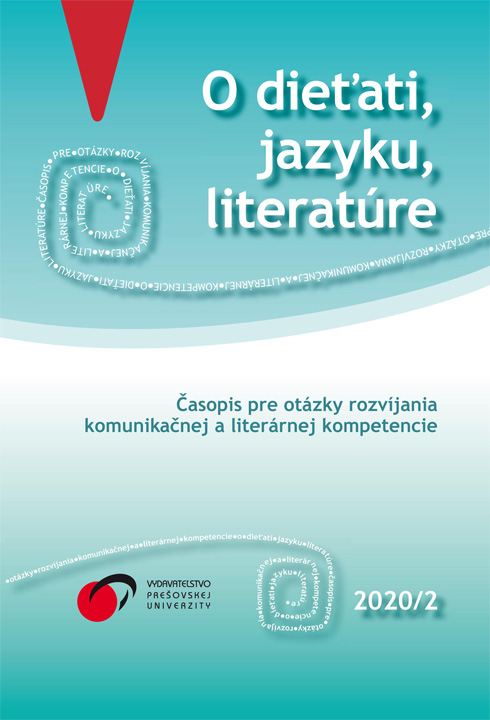Prekonceptuální výbava dítěte-rodilého mluvčího při
výuce základů syntaxe: problematika tzv. základní
skladební dvojice
Preconceptual instrumentation of a child-native speaker in learning basics of syntax: the problem of the so-called primary syntagma
Author(s): Stanislav ŠtěpáníkSubject(s): Applied Linguistics, School education
Published by: Vydavateľstvo Prešovskej univerzity v Prešove
Keywords: preconception;syntax;primary syntagma;primary school;
Summary/Abstract: The study scrutinizes the problem of teaching the basics of syntax in Year 3 of primary school, specifically the question of the so-called primary syntagma. This grammatical concept, which forms the basis of sentence analysis in primary, lower-secondary and even upper-secondary school, does not suit neither the onthodidactic, nor the psychodidactic perspective. In the paper, this is supported by the results of a research conducted in two classes of Year 2 (i.e. before any intentional instruction about the composition of a Czech sentence), in which the preconception of the so-called primary syntagma was investigated. This was done through the method of observation of pupils’ work with specifically designed exercises and analysis of the pupils’ solutions to these exercises. The essential part of the study is a number of recommendations for teaching practice – from the area of both content selection and didactic transformation of the content.
Journal: O dieťati, jazyku, literatúre
- Issue Year: VIII/2020
- Issue No: 2
- Page Range: 8-21
- Page Count: 14
- Language: Czech

